Lipidomics
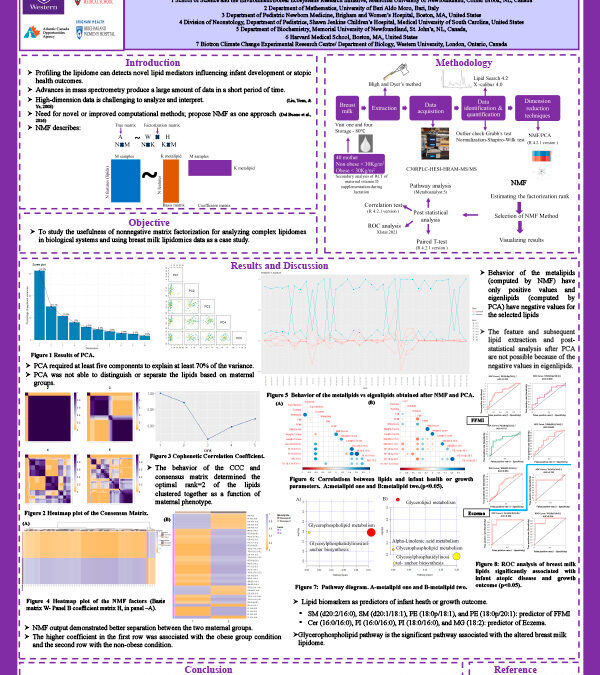
LIPI-001: Exploring Lipid Regulated Processes with Nonnegative Matrix Factorization: A New Approach for Breastmilk Lipidome Analysis
Mass spectrometry developments generate large amounts of lipidomic data, which can be helpful in the search of biomarkers. Data processing is crucial and…
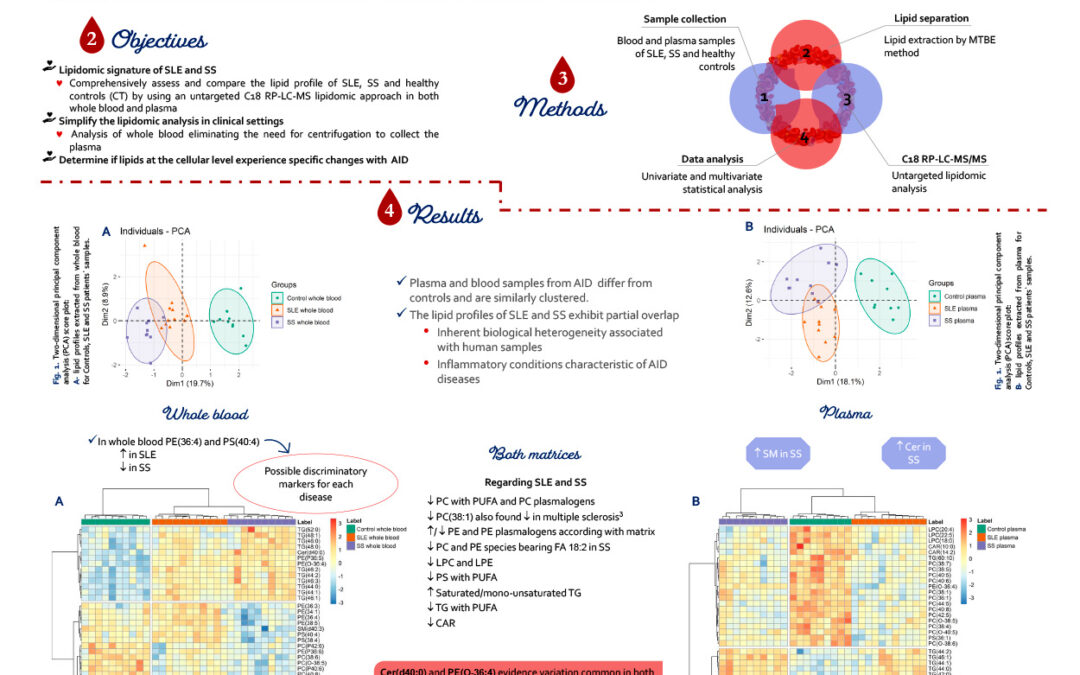
LIPI-002: Unveiling Alterations in Plasma and Blood Lipidomic Signatures in Systemic Lupus Erythematosus and Systemic Sclerosis Patients for Metabolic Biomarkers Discovery
Systemic lupus erythematosus (SLE) and systemic sclerosis (SS) are systemic autoimmune diseases among the most common ones and are very debilitating for…
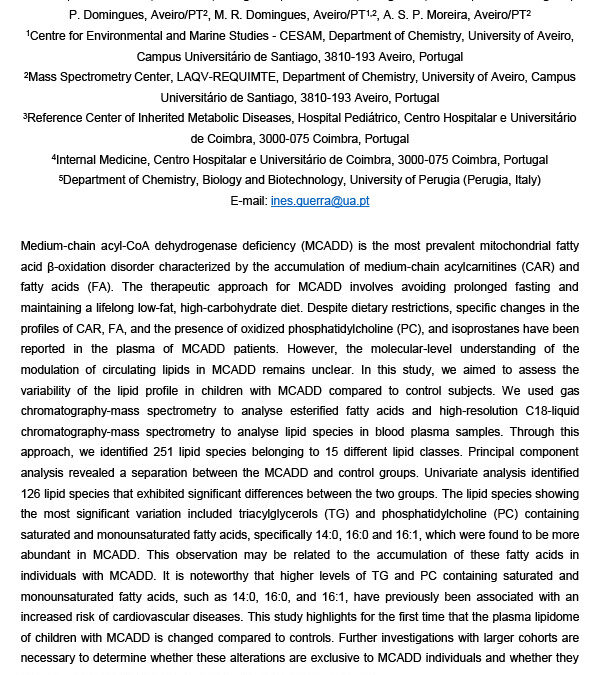
LIPI-003: Alteration in Lipid Metabolism of Children with Medium-Chain Acyl-CoA Dehydrogenase Deficiency: Evidences from Plasma Lipidomics Analysis
Medium-chain acyl-CoA dehydrogenase deficiency (MCADD) is the most prevalent mitochondrial fatty acid β-oxidation disorder characterized by the accumulation of…
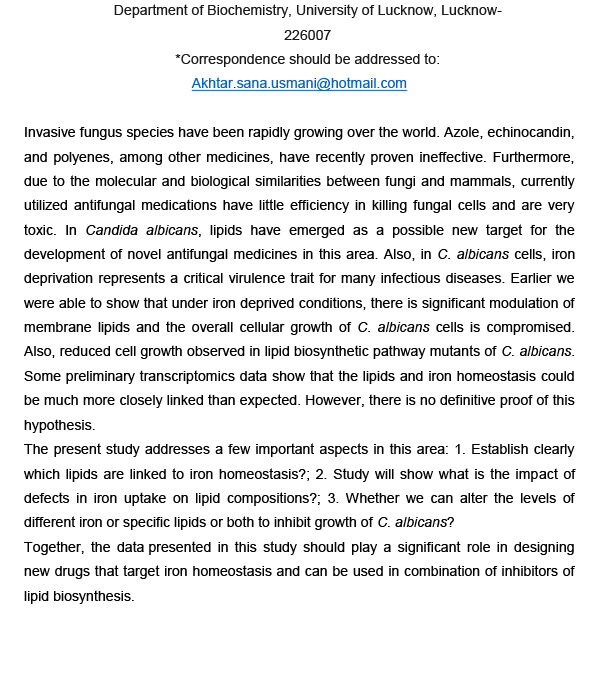
LIPI-004: Lipid Biosynthesis Inhibitors and Metal Chelators: A Potential combination Therapy to Treat Candida albicans Infections
Invasive fungus species have been rapidly growing over the world. Azole, echinocandin, and polyenes, among other medicines, have recently proven…
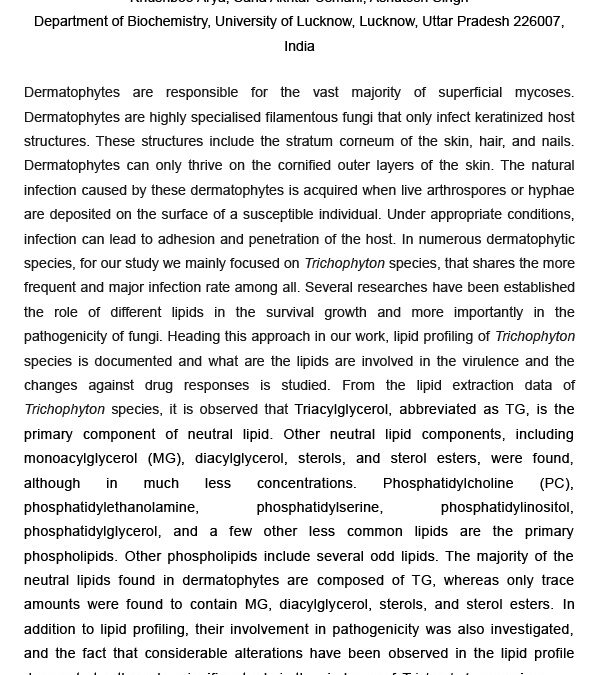
LIPI-005: Lipidomics of Dermatophytes and its Relevance to Dermatophytic Infections
Dermatophytes are responsible for the vast majority of superficial mycoses. Dermatophytes are highly specialised filamentous fungi that only infect keratinized…
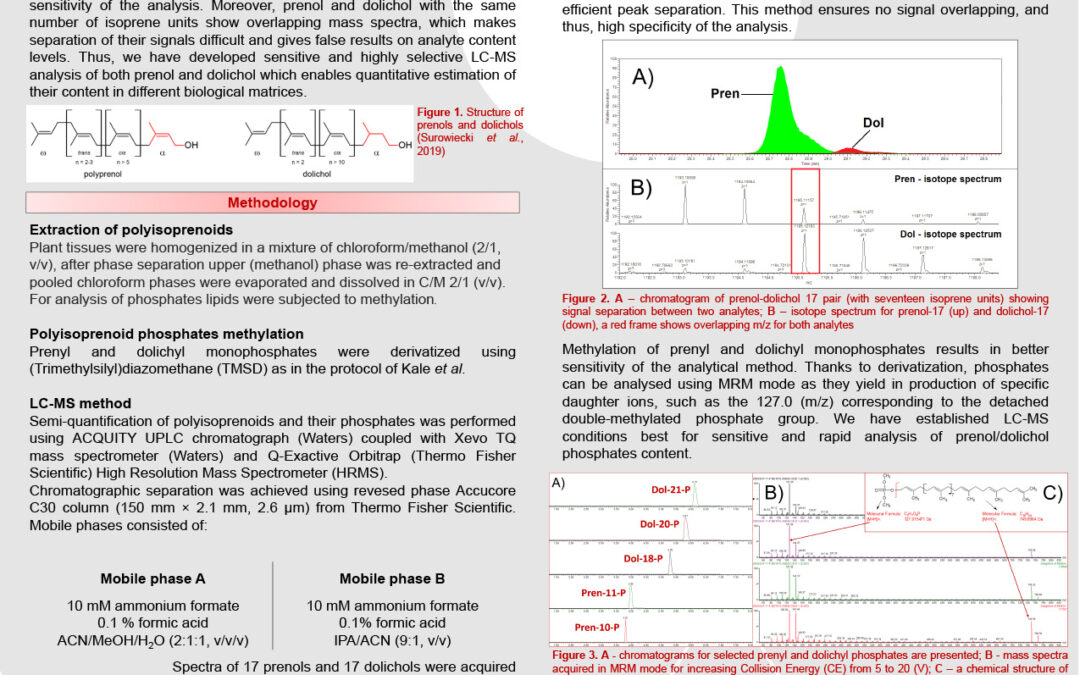
LIPI-006: Sensitive and Robust LC-MS Analysis of Polyisoprenoids and their Phosphates in Biological Samples
Polyisoprenoids are hydrophobic long-chain polymers, consisting of several or tens of isoprene units, that play crucial physiological functions mediating membrane…